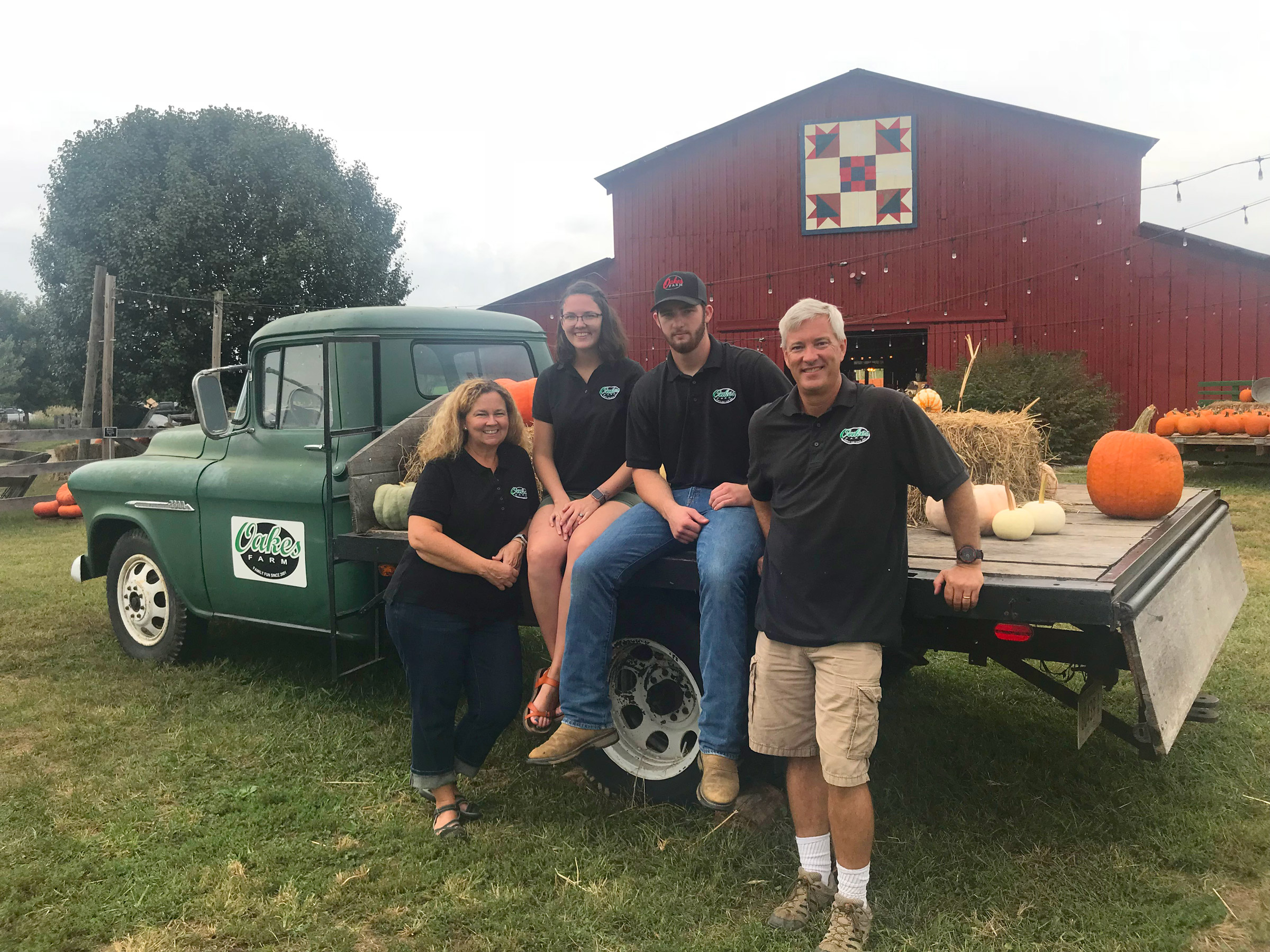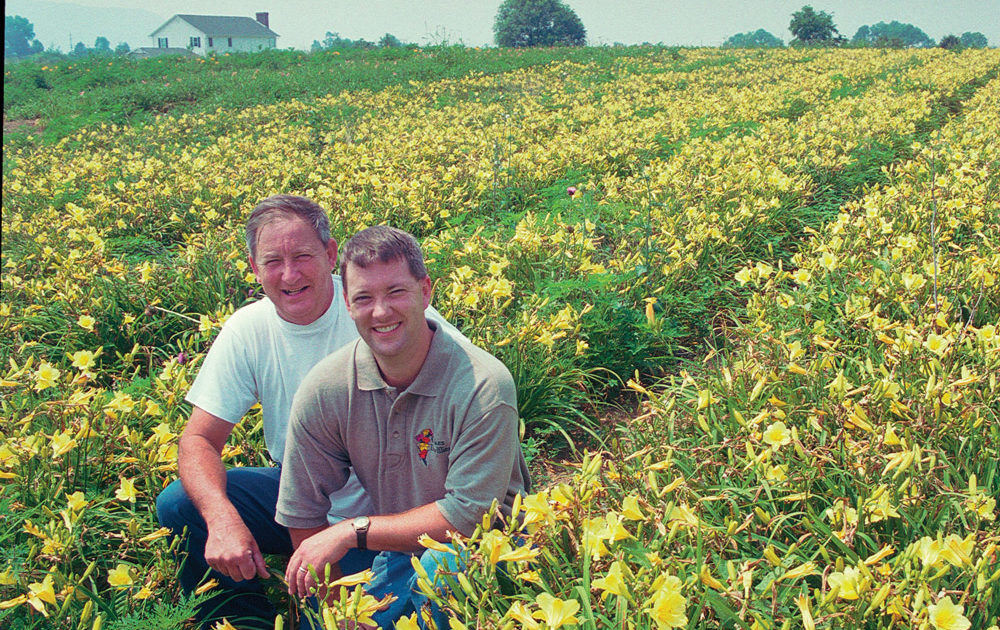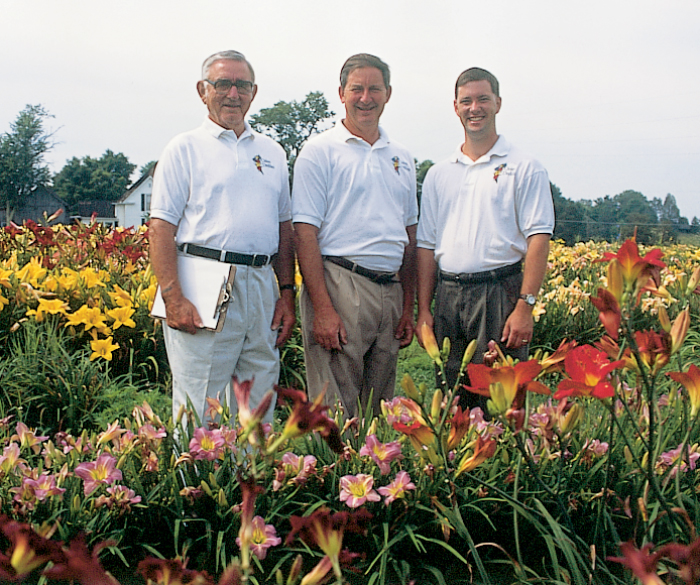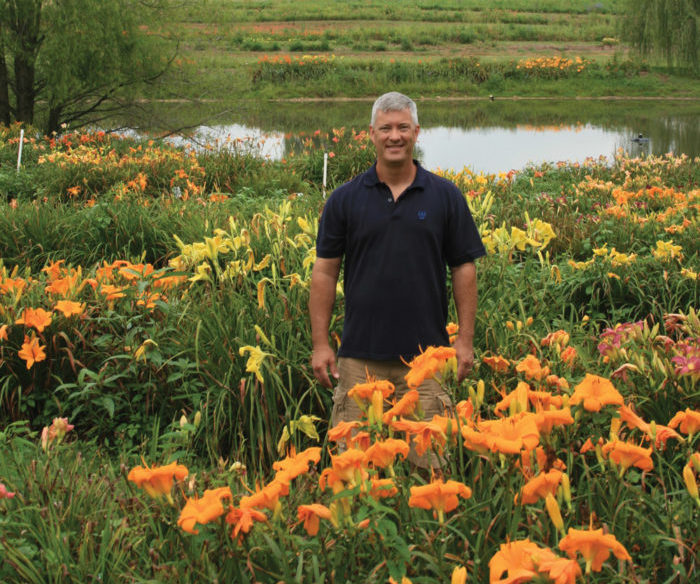By Patricia McDaniels
Photos Courtesy of Oakes Farm and UTIA
Value-added agriculture can be just about anything envisioned related to plant and animal production, as long as others are convinced to buy the product.
Take the Oakes family of Corryton. They’ve had a thing for daylilies dating to the 1960s. Ken Oakes took his family’s passion one step beyond his grandfather Bill and his father Stewart’s hobby. The men’s breeding and dividing of new flower cultivars morphed from a greenhouse pastime to selling a few plants locally, then into Oakes Daylilies, a thriving catalog business that today markets the beautiful flowers nationally.

“I still can’t believe I talked Dad into springing for our first catalog,” laughs Ken Oakes, Knoxville ’90. Oakes was fresh out of UT but believed the family could make a go of selling the daylilies to more than just neighbors and the Knoxville-area community.
“We spent more on our first catalog than the nursery made the previous year,” Oakes says.
That investment paid off.
Oakes is among a community of agricultural entrepreneurs in Tennessee and across the nation who have worked to establish a niche where their businesses and families can thrive. Agricultural producers are perhaps the ultimate entrepreneurs—the original makers.
From prehistoric times, when humans fashioned tools to chop crops or mash grains or to start fires to clear land and to construct terraces to create arable space, farmers have used their knowhow and ingenuity to make their lives and the lives of those around them better. For the last half of the 20th century, however, that has been a tall order for the small family farm. In a world where farms were expanding to manage thousands of acres of crops and herds that easily numbered hundreds of head, the number of traditional producers working small plots of land has diminished.
Twenty years ago, the UT Institute of Agriculture set out to address how that cultural shift would affect the preponderance of Tennessee producers. The average size of aTennessee farming operation then was about 132 acres, andthat number is 164 acres today.
In 1998, UTIA created the Center for Profitable Agriculture (CPA), then called the Agricultural Development Center, an initiative dedicated to helping Tennessee farmers evaluate and develop enterprises that enable them to compete and thrive. The CPA was formed within UT Extension, with momentum and support from the 1995 Governor’s Council on Agriculture and Forestry. In 2002, the CPA gained the support and endorsement of the Tennessee Farm Bureau Federation. The present director, Rob Holland, has been with them from the beginning.
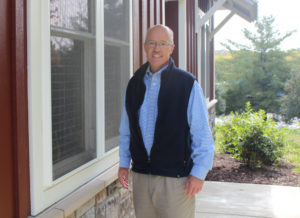
Holland is actually the third leader of the CPA, following two other UT Knoxville alumni: Ray Humberd (’59, ’65), retired associate dean of UT Extension, and Dan Wheeler (’64), former Tennessee commissioner of agriculture. Humberd launched the center, and Wheeler served as the first director until he retired in 2007. Holland (Martin ’91, Knoxville ’93) took the helm in 2007. Holland says the mission has not waivered.
“Our mission is to help farm families evaluate and develop farm business ventures that can be sustainable sources of income. We specialize in value-added enterprises that allow producers or growers to earn a greater portion of consumer expenditures by processing, packaging or marketing crops, livestock or other farm resources directly to consumers or users.” Their work includes assisting in the evaluation and development of agritourism enterprises and direct-marketing ventures.
While the mission is the same, Holland says the CPA’s method of assisting farm families has changed greatly over the years.
“In the beginning, we spent 90 percent of our time one-on-one with a producer and maybe the family at the kitchen table evaluating their idea and working through a complete business analysis,” he says. “Now the emphasis is on education and training.”
“We’ve shifted from individual project management to teaching the masses.” The reasons are simple, Holland explains. The demand is growing, and the CPA consists of just Holland, three other specialists, a program coordinator and an administrative assistant. Together they present numerous workshops annually on topics involving everything from direct marketing, packaging and handling of meat products, regulations, social media marketing, how to write a business plan and record keeping. They are known for their long-standing series of farmers’ market boot camps. And they write manuals and publications that present seminar topics in greater detail.
“I can’t tell you how many times a producer has come up to me after a presentation to tell me our publications and workshops are the reason their business is thriving. Many of them come to multiple classes.” Although their efforts have moved from the kitchen to the classroom, the CPA staff members still offer individual consultations and in-depth assistance as time permits.

To date, the CPA boasts an impressive list of successful clients with agritourism enterprises as well as many who sell ag-related goods like jams, baked items, produce, meat products, dairy products and wines.
That list includes Oakes Farm. The daylily catalog operation is not the family’s only endeavor. For the past 18 years, the Oakes have welcomed the public to their farm each autumn to enjoy corn mazes, pumpkin patches, hot apple cider and clean family fun. Ken Oakes’ wife, Dena, proposed the idea of developing the agritourism venue to add value to their property based on the reaction of their own young children to a pumpkin patch visit in 1998. The Oakeses, and her brother David Black (Knoxville ’99), were among the first entrepreneurs to attend CPA workshops.
After further visiting with CPA staff and other agritourism operators, the Oakeses and Black put their plan in motion, and an idea became a reality. Today, thousands of people visit the farm in the fall.
“I don’t really think of myself as a maker,” Oakes says. “That term calls to mind hands-on crafting and making your own tools. But we did build the farm business ourselves. We started with an idea and an empty field. Now we have barns and concessions.” And plenty of success.
The combined success of the businesses enabled the Oakes to remain on the farm full time, as opposed to holding regular jobs and farming part time, as his grandad and dad had done. Who knows? Perhaps their daughter, Kennedy, a 2018 graduate of UT Knoxville who studied hotel, restaurant and tourism management, or son, Joshua, who is studying plant sciences at UTIA’s Herbert College of Agriculture, will become the fourth generation of Oakeses to farm in Corryton. And who knows how they might re-make the businesses to suit their own visions?
Learn More
The UT Center for Profitable Agriculture, along with the expertise of county Extension agents and Extension subject-matter specialists, has helped farms all across the state build profitable and sustainable value-added businesses. A number of them are featured on the CPA’s website: ag.tennessee.edu/cpa. Click on the link to success stories. And be sure to support these and other similar enterprises to ensure the future success of our agricultural entrepreneurs.
 Got an itch to join the maker community? Want to sell an agricultural product or turn grandma’s scrumptious applesauce cake into a profitable confection? Check out the CPA’s publications and workshops for suggestions on how to get started.
Got an itch to join the maker community? Want to sell an agricultural product or turn grandma’s scrumptious applesauce cake into a profitable confection? Check out the CPA’s publications and workshops for suggestions on how to get started.
